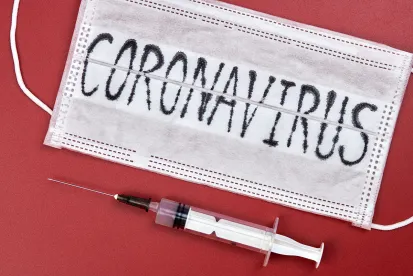On July 15, 2020, the National Labor Relations Board’s (“NLRB”) Division of Advice published 16 Advice Memoranda addressing myriad questions posed by various Regional Offices.
While a majority of the Memoranda were drafted within the past month, a few were originally issued months or years ago. Advice is the agency’s internal think tank and the vast majority of Memoranda drafted by its attorneys are kept confidential as litigation-related documents. Advice may instruct a Region to issue complaint in a case, seek settlement or dismiss the charges.
Each recently released memo is tied to a specific unfair labor practice (“ULP”) charge being evaluated by a Regional Office, meaning that Advice’s conclusions are binding only as to the parties involved in each case. The agency periodically releases Advice Memoranda to give the public some idea of how it might handle similar cases.
While many federal labor law topics are covered in the newly-released Memoranda, a number of them, unsurprisingly, address the issue du jour affecting everyone: the intersection of the NLRA with health, safety and economic issues stemming from the COVID-19 pandemic. The determinations by the Division of Advice reflect greater latitude provided to employers in their response to the crisis of the COVID-19 pandemic, permitting employers to act unilaterally without first bargaining to agreement or impasse with the union. This latitude is consistent with the guidance issued by the NLRB General Counsel detailing the decades old case law addressing the bargaining obligation during times of crisis. The Memoranda also reinforce the flexibility employers are entitled to under the recently-instituted “contract coverage” standard for unilateral change cases.
We discuss below the conclusions by the Division of Advice regarding COVID and health and safety-related ULP charges, as well as unilateral implementation issues in light of the “contract coverage” standard.
COVID and Health/Safety-Related Issues
-
Unilateral Change: In Mercy Health General Campus, Advice concluded that an acute-care hospital was permitted under the Act to unilaterally expand its work-from-home policy that applied only to non-union employees and revise its attendance policy to temporarily pause attendance-related penalties. Significantly, it is the NLRB General Counsel’s view that the employer was permitted to act unilaterally during the emergency “so long as its actions are reasonably related to the emergency situation.” Then, the employer must comply with any statutory and/or contractual decisional and/or effects bargaining obligations that exist, meaning the employer could act unilaterally to respond to a crisis but then had to comply with its bargaining obligations.
-
Alleged Discriminatory Conduct re: WFH Policy: In Larry Peel Co., an employee was terminated after being denied a work-from-home request. The employee alleged that the employer violated the Act because the employee texted with the Company’s controller about health and safety issues. Advice found the ULP charge lacked merit because the controller was a supervisor or manager, and thus the conduct was not protected. In any event, the employer was unaware of the texts and the work-from-home request was individual in nature—not protected, concerted activity.
-
Union Access to Workplace: In RS Electric Corp., the CBA provided that the union had the right to access the job sites “at any reasonable time.” The employer decided to require one-hour advance notice of the union’s intent to access the premises to allow for safety precautions, and the union demanded immediate, unrestricted access to the worksite. Advice concluded that under MV Transportation, which adopted the “contract coverage” standard, the employer was privileged to request one-hour notice, and that the Board would not choose between “two ‘equally plausible’ interpretations of a contract.”
-
Duty to Bargain re: Layoffs: In Children School Services, Advice concluded that the employer, a government contractor providing nursing services within the public school system, was permitted under the CBA’s layoff provision and management-rights clause to unilaterally lay off employees in response to COVID-related school closures. In addition, the contract’s broad zipper clause permitted the employer to offer temporary work assignments in lieu of layoffs and did not oblige the employer to bargain over the effects of the layoffs or temporary work assignments.
-
Non-COVID Health and Safety Issues: In 7 Gates Mediterranean Grill, Advice found that an employee’s comment on a WhatsApp chat to co-workers that the individual suffered food poisoning due to a co-worker’s failure to wear protective gloves was not protected, concerted activity because (i) the message did not refer to any employer policy or other working conditions, or seek to initiate group action; and (ii) merely referring to health and safety did not make the comment “inherently concerted.” Advice also found that an employer’s comment in its position statement to the Region that “discussing work matters with non-employees (even previous employees) is not acceptable in any work environment” is not an unlawful blanket prohibition of Section 7 activity because (i) there was no evidence the employer communicated this statement to the charging party, and (ii) even if it did, such a statement—standing alone—would not constitute a rule subject to the Boeing
Unilateral Implementation Issues
-
The Employer, in SAPA/HYDRO Extrusion, was privileged under the CBA’s management-rights clause (permitting the employer to create “reasonable plant rules and regulations of conduct” not contrary to the contract) to unilaterally enforce a previously dormant handbook policy requiring employees to use vacation time and FMLA leave concurrently.
-
In DeNovo Legal LLC d/b/a Epiq Document Review, Advice concluded that an employer’s confidentiality rule, which broadly defined confidential information as including “personnel information,” when read in context clearly addressed proprietary or internal company information related to sensitive customer and employee data—not employee information relevant for Section 7 activities. Advice also found that a catch-all provision in the employer’s conflict-of-interest policy that prohibited employees from “engaging in any conduct which is not in the best interest of [the employer]”, was lawful given the surrounding context where the provision in question was preceded by an enumerated list of “potentially compromising situations.”
-
In Smiths Frozen Foods, Inc., Advice addressed an employer’s unilateral addition of language to its drug and alcohol policy, which required immediate termination for off-duty use of any substance that results in a positive drug test. Applying the “contract coverage” test from MV Transportation, Advice concluded that the employer’s action fell within the scope of the parties’ collective bargaining agreement, which allows employer amendment or revision of its drug and alcohol policy without bargaining.
-
In another case involving a unilateral change by an employer, American Medical Response, Advice determined that the employer’s unilateral change to its outside employment policy, disallowing dual-employment, and discharge of an employee pursuant to that policy was permitted under Section 8(a)(5) of the Act. There was no evidence of a past practice allowing dual-employment, so the employer’s actions were lawful because the employer did not alter its practices concerning whether and when to authorize outside work for non-competitors.
* * *
While the Advice Memoranda are a good indicator for how and whether the NLRB General Counsel and the Regions might decide to prosecute COVID-related bargaining ULP charges and other workplace issues, we will continue to keep an eye out for Board decisions regarding these issues, which will provide more concrete guidance during this unprecedented time.







 />i
/>i
